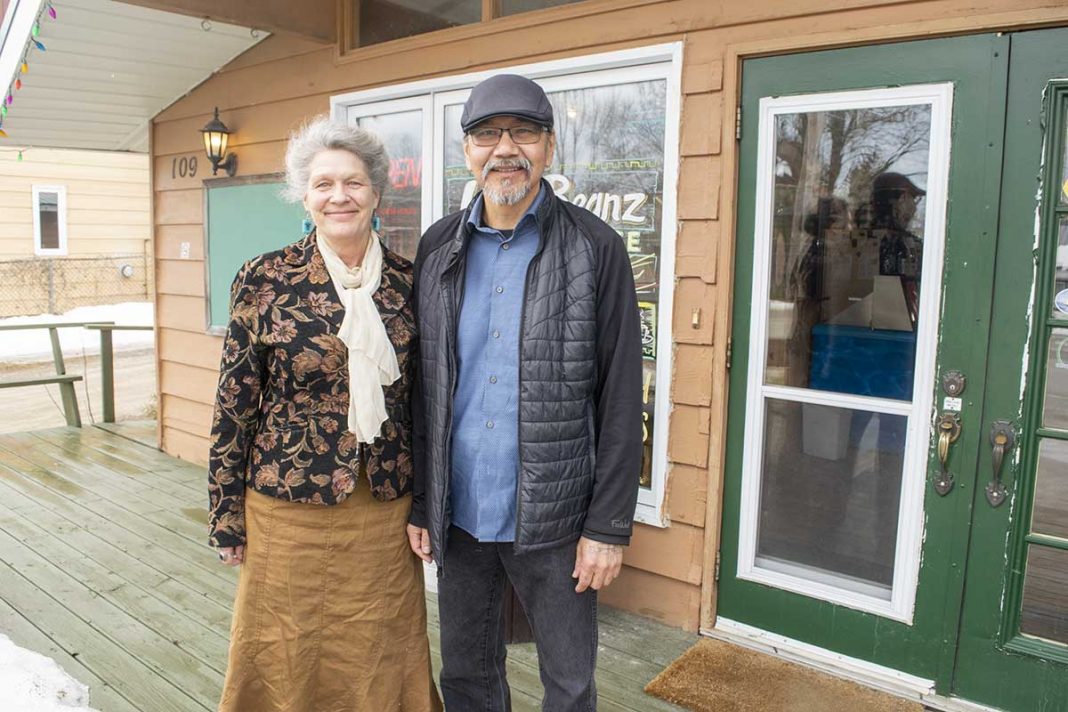MANITOWANING – Tehkummah resident Joahnna Berti has been named as the executive director of United Manitoulin Islands Transit (UMIT) as of Monday, March 16, becoming the person who will see Manitoulin Island’s most recent transit venture through to its launch in June 2020.
“In the future, transportation needs are going to be even more exigent than now. We’re looking to build an organization for all cultures and deliver the service to people who need it,” said Ms. Berti.
UMIT is set to launch in a preliminary capacity on June 1. It will offer two routes to start, both based in Little Current and operating from Monday to Friday.
A morning run will head to Mindemoya at 7 am, complete a small circuit there and return to Little Current for 8:30 am. At 8:45, the vehicle will head to Manitowaning and return to Little Current at 10 am.
An afternoon trip will follow the same order of stops, leaving Little Current at 3 pm and returning at 4:30, then heading to Manitowaning at 4:45 pm with a return at 6 pm.
For the first month of service, all trips will be free. The one-way fare to any of those locations, beginning in July, is expected to be four dollars.
“During the month of free rides, we’re going to continue to gather information from our riders. We’re actively involving the community in the design of our transit—it’s unheard of,” said UMIT president and board chair Guy Dumas. The first month of transit will cost the transit organization roughly $12,000, which Mr. Dumas called “an investment to public transit on Manitoulin Island.”
“This is definitely going to take all Islanders and guests to make public transit sustainable for years to come,” he said.
He told The Expositor that the initial vehicle will have space for 14 passengers, have bike racks on the front and back and also a place for small watercraft such as canoes and kayaks on the roof.
Mr. Dumas stressed that this routing was just a start and that he was not trying to exclude Gore Bay and Western Manitoulin. The ultimate goal is to have a figure-eight pattern of routes with two off-shoots, one to Meldrum Bay and the other into Wiikwemkoong.
Ms. Berti said a challenge in keeping the service sustainable will be getting people used to its presence.
“I work with a lot of young people and when we had the Ontario Northland bus service, they were just starting to use it more when they shut it down,” she said.
This transit service will be more important than ever in the future, she said, because of the high birth rate of First Nations individuals as well as the Island’s aging population. When young people enter the workforce as young as 15, they cannot drive, and the costs for a young person to own a car can be prohibitive.
“Both ends of our population are disadvantaged. They can be held back because they get stuck in their communities and have to rely on family and friends for rides. There’s a big quality of life impact to being still able to manage their lives and their own transportation,” said Ms. Berti.
The transit company is registered as a co-op, but Mr. Dumas said it is best defined as a social enterprise—a business that aims to achieve social, cultural, and community-based economic or environmental outcomes and also earn revenue.
Ms. Berti was chosen because of her high risk tolerance and experience in social enterprises and non-profits, said Mr. Dumas. Her background is in arts and culture and community-based work, with a focus on forming partnerships to advance the goals of an organization. This includes work with the Manitowaning-based Debajehmujig Storytellers group.
Ms. Berti said she was inspired by the 97 calls to action from the Truth and Reconciliation Commission to create initiatives that include people from all backgrounds. She has already been given specific directives to advance UMIT which will take at least six months to complete.
Mr. Dumas said UMIT was designed in an anti-colonial manner compared to other businesses.
“I’m intentionally helping to create UMIT in such a way that it recognizes that it’s humanity, it’s people who create systems,” he said. “I’m very happy Joahnna has accepted this offer.”
Mr. Dumas emphasized that this is an egalitarian operation. He said while many people have tried to run transit operations on Manitoulin Island in past decades, the difference with UMIT was that communities have been involved in the planning, execution and management of the service. He gave much credit to the founding board members, Sandy Cook, Christine Sarbu, Rose Shawanda and Betty Bardswich, for their dedication to the cause and said they would still be very much needed going forward.
UMIT will be the only transit co-operative in Ontario. There are just four across Canada. Mr. Dumas said the other co-ops do not release their financial details so he could not provide an estimate about their sustainability, though he noted that public transit is not a viable business model and subsidies are universal across public transit systems, even in large centres such as Toronto.
In April 2019, the Municipality of Central Manitoulin received up to $500,000 in Ontario Community Transportation Grant funding, to be funneled to UMIT.
The transit group is seeking individuals and organizations to become members of the collective. There are three annually-paid tiers—supporters, for $100, which includes for-profit and non-profit businesses as well as individuals; employees, for $10, for people who work for UMIT; and riders, for $1 per year.
In addition to getting a vote on transit matters, membership perks include periodic draws for month-long free transit passes. There will also be advertising space inside the vehicles for the member businesses.
“With good public transportation, which we’ll phase in over time, we’re giving people opportunities to get places, because cars are very expensive, and giving more opportunities for people to get to school and work,” said Ms. Berti.
UMIT is supported by Kenjgewin Teg, March of Dimes, the Transit Consulting Network and the Municipality of Central Manitoulin, as well as the transportation service provider which has been previously mentioned as AJ Bus Lines. UMIT has also worked with area First Nations, LAMBAC and hospitals.
Ms. Berti said she was confident that UMIT’s model would meet the needs of Islanders and become a sustainable transportation option into the future, when it will be needed even more.






